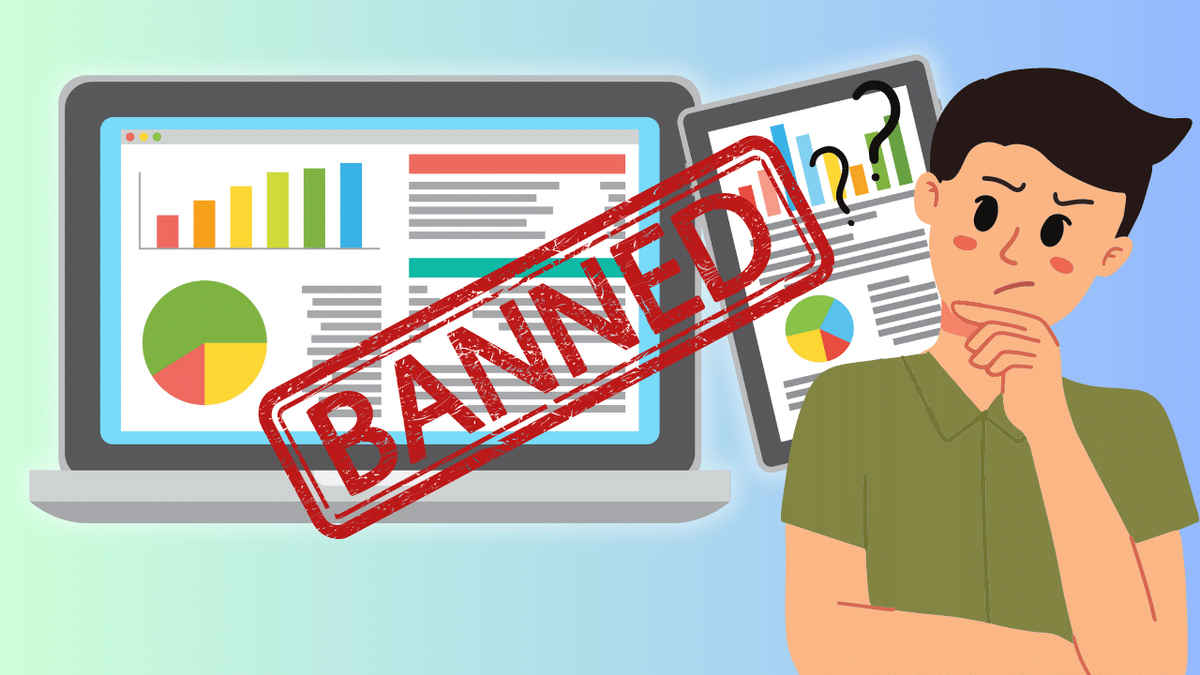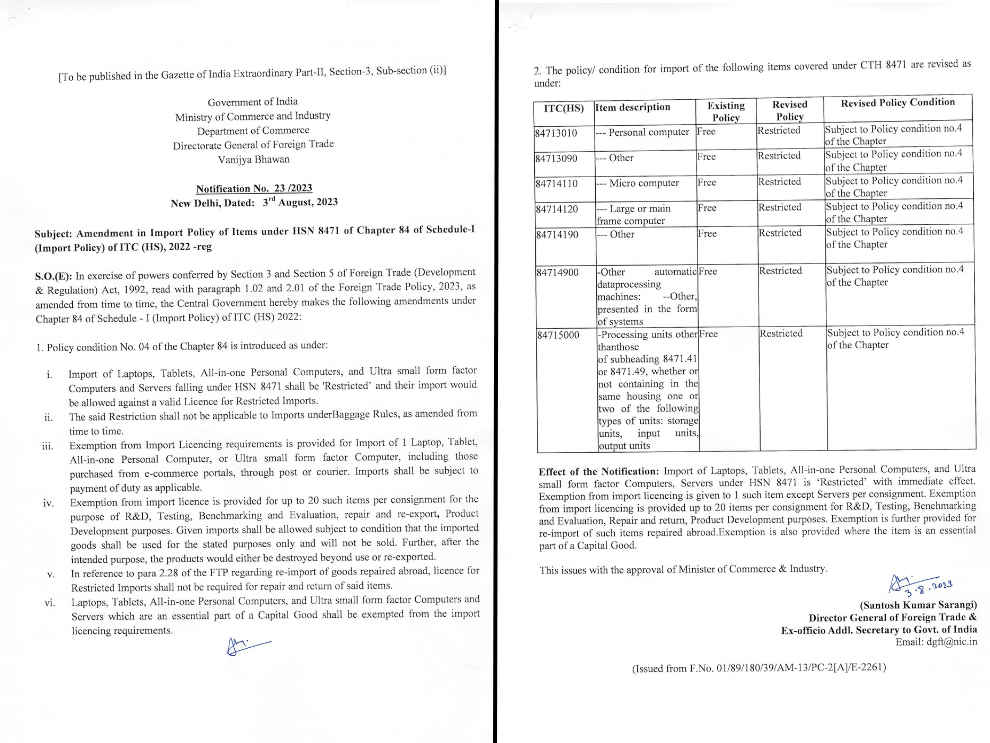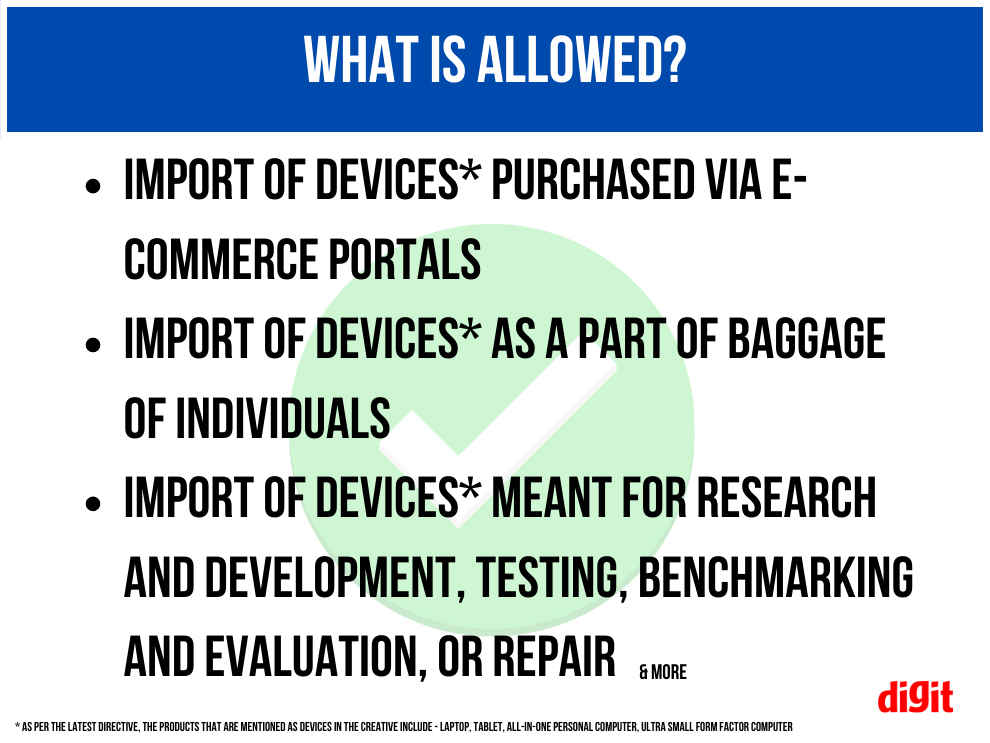
In a move that sent shockwaves across the consumer electronics market in India, the Government of India’s Ministry of Commerce and Industry has announced a new set of rules restricting the import of laptops, tablets, AIOs, ultra-small form factor computers, and servers.
The notice issued by the Directorate General of Foreign Trade lists out all the changes made to the import directives of the above-mentioned consumer electronics goods in the country. This move has come right before the start of the festival season in the country, which sees record sales of laptops and tablets.
The news has brought along several doubts and questions in the minds of consumers looking to get their hands on one of the now-restricted devices. So, here’s a detailed look at what the new regulations mean and how they could affect your next purchase –

If you read through the last part of the above notification issued by the officials, you'd have come across HSN Code 8471. HSN stands for Harmonized System of Nomenclature. It was introduced in 1988 by the World Customs Organization (WCO) to identify and categorise traded goods. HSN 8471, as per the official definition, covers devices that are - "Automatic data-processing machines and units thereof; magnetic or optical readers, machines for transcribing data onto data media in coded form and machines for processing such data, n.e.s.". In India, this code is generally used to differentiate products that fall under Customs or Central Excise. As you would have guessed, this code covers all the devices that have been now moved to the "restricted" category of traded goods in India. Now there are a variety of devices, including storage devices, listed under this code. However, the restrictions only apply to the devices that have been specifically mentioned in the notification, which are - laptops, tablets, AIOs, ultra-small form factor computers, and servers.
After the announcement of the change in regulations, we reached out to laptop manufacturers who are active in India, and this is what they had to say on the newly imposed restrictions on the import of laptops in India.
Dell:
"We are aware of the new regulations. Dell has been manufacturing in India for 15 years and we continue to work with the Indian Government on our plan.”
Acer:
"We understand that the notice to restrict imports of laptops, tablets and other related products is a start of the process to accelerate Make In India. Acer as one of the leading computer and tablet brands in the country has been manufacturing laptops, all-in-ones and tablets in India over the past few years while desktops have been manufactured in India for over 20 years at our factory in Pondicherry."
There are a LOT more angles to this regulation change, which I believe are best left for the law professionals to understand. For now, I believe you should buckle yourself up for a price hike of laptops and tablets over the next few months. This is especially true for the brands that are not actively manufacturing their products in India.

Once the brands active in this space are able to get on some steady ground, you can expect the prices of most of the devices to stabilise or, rather drop down as well! This is because, as things stand, most manufacturers who do not have an active facility in India will now look to set up manufacturing bases in the country, bringing down the overall costs of the products and logistics.










